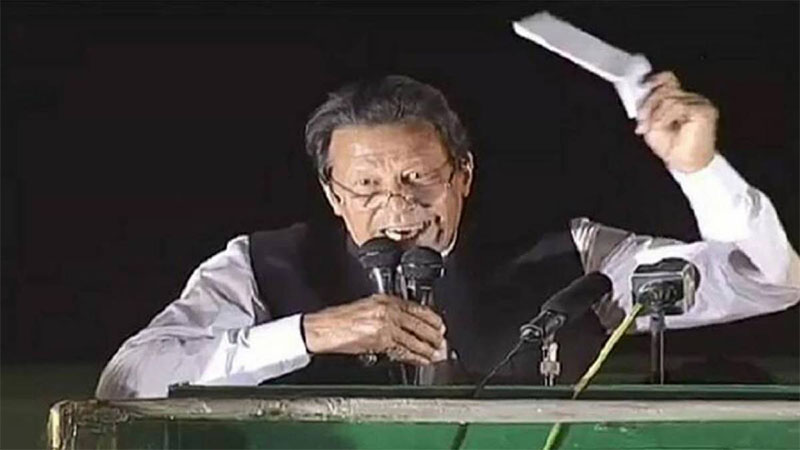The Islamabad High Court (IHC) has acquitted Imran Khan, the founding chairman of Pakistan Tehreek-e-Insaf (PTI), and PTI leader Shah Mehmood Qureshi in the high-profile Cipher case. This decision comes after the court suspended their 10-year sentences as it heard their appeals against the conviction handed down by a special court under the Official Secrets Act.
Background of the case
On January 30, 2024, the special court had sentenced Khan, the former prime minister, and Qureshi, the former foreign minister, to 10 years in prison. The charges stemmed from allegations that they illegally possessed a classified diplomatic document, disclosed its contents to the public, and used it for personal and political gain.
The case originated from a public rally held by Khan in Islamabad on March 27, 2022, where he displayed a document he claimed was evidence of an “international conspiracy” to oust his government. This incident led to a series of investigations culminating in the special court’s conviction earlier this year.
Legal proceedings and arguments
The appeal was heard by a division bench comprising IHC Chief Justice Aamer Farooq and Justice Miangul Hassan Aurangzeb. The PTI’s legal team argued that the case against their clients was unfounded, emphasising that the alleged diplomatic cipher had never been shown to the judge who convicted them.
Justice Farooq questioned the validity of the charges without clear evidence of the actual content of the cipher. “If the information has been twisted, then it should be known what the information was,” he remarked during the hearing. The court’s inquiries highlighted the prosecution’s failure to produce the cipher or its contents during the trial, casting doubt on the integrity of the charges.
Defense and court observations
Khan’s counsel, Barrister Salman Safdar, contended that the prosecution’s case lacked substantial evidence and that the proceedings against his client were politically motivated. He argued that the requirements of a fair trial under Article 10A of the Constitution had not been met, particularly given the secrecy surrounding the diplomatic cable.
Justice Aurangzeb inquired about the specific contents of the cipher, to which the defense replied that neither they nor the investigation officer had seen the document. This secrecy was cited as a major flaw in the prosecution’s case.
The court’s verdict
The IHC bench, after considering the arguments, found that the prosecution failed to link the accused to any significant breach of national security. The court noted that there was no concrete evidence showing that the contents of the cipher, if revealed, would compromise Pakistan’s security.
The court also took into account that the cipher was not presented in court, neither to the investigating officer nor during the trial. This lack of transparency and the procedural lapses led the IHC to suspend the sentences and eventually acquit both Khan and Qureshi.
